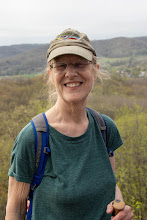 |
| Pixabay Image |
One of the biggest challenges is finding and correctly attributing images and articles. It's a challenge that I enjoy because of that fabulous intellectual property and copyright training we library folks undertake in our learning in school or on the job.
My first serious wake-up and commitment came in the early '80s when a library colleague and I started a kids radio show on our local public radio station. Ear Tickler's focused on kid friendly music and reading stories to kids. The station had music licenses so we were golden for all the CDs we played.
The books were another story. In order to get permission, we needed to send out a request (via a handy form the station provided) to the publisher for every book we wanted to read. We needed permission for free use or an "under $10" fee (no budget blues). For every 3-4 books we read on air, we averaged 20 requests. Permission was either flatly denied or so exorbitantly expensive, it was simply out of our league. But everything with permission that we read was free and clear and we never looked over our shoulder in the years we ran the show.
I recently thought of this during a cantankerous search. I usually can find anything I need on my favorite go-to site: Pixabay and attribute anything I use. But I really struggled with this particular search. Then I saw an photo on Google Images that was perfect. I drilled down to the origin; located the blog and wrote for permission. In the note, I briefly listed the presentation, linked to the presentation site and indicated the photo would be attributed to both the theater and the actor and play that the image was of.
Boom, within a day I had the permission.
Over the years, there are other types of fair use that I have worked with to get images. A book's cover is not copyrighted. Rather it is part of it's "marketing." So I can use a cover in my presentations free and clear. Other times, when the image is copyrighted or part of a photo or illustration service (think Shutterstock) I check to see if that oh-so-perfect image is affordable and pay a small fee to download and have legal rights to.
In the era of Pinterest, when images flow often without attribution, taking the extra time to make sure our images are fairly used and attributed is a great way to support creativity, intellectual property and to support artists. What have you found helpful in your thinking on this?

Creative Commons searching on Flickr! People want you to use their work and give you rights to do so without needing to ask --- often just requiring attribution. Also I *adore* Noun Project, which is all CC-licensed (or pay $1 or $2) for all rights -- Noun Project is all icons. Incredibly handy!
ReplyDeleteThanks Abs!
Delete